INFP vs ENFP: Which One Are You?
INFP vs. ENFP: What’s the difference? Are you struggling to find out which one fits you best? These two personalities have a lot in common, so it’s pretty normal for anyone to feel stuck when trying to decide which type is really their true type. As an MBTI® practitioner I work regularly with clients who feel torn between the two. With that in mind, I wanted to break down the most significant differences between the ENFP Visionary and the INFP Dreamer.
Let’s get started!

Table of contents
Estimated reading time: 7 minutes
INFP vs ENFP: How to Spot the Differences
How INFPs and ENFPs See the World Differently
The main difference between INFPs and ENFPs is their orientation towards the world. INFPs are introverted and tend to focus more on their inner world of thoughts, feelings, and imagination. They prefer quiet environments and feel recharged by time alone. Before they interact with the world, they first have to check in with their own thoughts and feelings.
ENFPs, on the other hand, are extroverts who focus more on the outer world. They tend to be energized by interacting with others and getting out into the real world. They tend to speak as thoughts appear in their mind; and thus are much more quick in conversation, easily thinking-out-loud and generating ideas. ENFPs also need alone time, but they can get bored and restless if alone time stretches on for too long and they aren’t getting enough real-world stimulation.
What INFPs and ENFPs have in common:
Despite their different orientations, INFPs and ENFPs have a lot in common. Both types share the same cognitive functions and so they process information and make decisions in very similar ways.
What are the Cognitive Functions?
The cognitive functions are the building blocks of personality type. It’s important to understand that every person, regardless of their personality type, has a preference for two extraverted functions (outward-oriented) and two introverted functions (inward-oriented). The order in which these four functions operate is specific to each person’s four-letter Myers-Briggs personality type.
For example: The four cognitive functions preferred and shared by ENFPs and INFPs are Extraverted Intuition, Extraverted Thinking, Introverted Feeling, and Introverted Sensing. However, they appear in a slightly different order between the two personality types:
- ENFP Cognitive Functions: (1) Extraverted Intuition > (2) Introverted Feeling > (3) Extraverted Thinking > (4) Introverted Sensing
- INFP Cognitive Functions: (1) Introverted Feeling > (2) Extraverted Intuition > (3) Introverted Sensing > (4) Extraverted Thinking
An ENFP is considered an Extrovert because they prefer their main outward oriented function (Extraverted Intuition) before their main introspective function (Introverted Feeling). Likewise, an INFP is classified as an introvert because they prefer their main inward-oriented function (Introverted Feeling) before their main outward-oriented function (Extraverted Intuition).
How Do the Cognitive Functions Show Up in INFPs and ENFPs?
Both INFPs and ENFPs are highly intuitive, imaginative, and emotionally driven. They care deeply about their beliefs and passions, and are focused on finding ways to make the world a better place.
Both types can also be idealistic dreamers, who see a future that others don’t. They may find it difficult to fit in with society’s expectations and norms; but at the same time, they have an infectious enthusiasm that inspires others.
As Extraverted Intuitives, both INFPs and ENFPs enjoy thinking outside-the-box and generating ideas and possibilities. They can usually see the bigger picture in any situation; and they have a knack for coming up with creative solutions to complex problems. The world of what “could be” is more exciting than the world of what “is.”
Both INFPs and ENFPs make decisions using a cognitive function called Introverted Feeling, or “Fi” for short. This means that both types are driven by their values and beliefs, rather than external logic or societal expectations. They also crave a sense of authenticity in every aspect of life, and strive to make decisions that align with their inner truth. Even though they care about harmony and rapport, they will upset or disregard harmony if they are trying to stick to a value that they believe in.
How INFPs and ENFPs approach action:
One way to differentiate between INFPs and ENFPs is how they approach action. ENFPs tend to take action first, then process later. They thrive on spontaneity and love trying new things. On the other hand, INFPs tend to process first and need a lot of information before taking action. They prefer to plan ahead and weigh all their options before making a decision. This can sometimes lead to indecisiveness, but it also ensures that they make well-informed choices.
ENFPs can risk being too impulsive and scattered and INFPs can risk being too indecisive and inactive. At the same time, ENFPs can bring innovative ideas to life quickly while INFPs can really get into a deep understanding of a humanistic problem.
Point being, neither personality type is inherently better than the other! But if you’re trying to figure out which type fits you better, you might want to consider whether you’re more of an action-first type, or an introspection-first type. Do you struggle more with impulsivity or inaction?
The Insecurities of INFPs and ENFPs:
Every personality type tends to have insecurity around their inferior cognitive function. For ENFPs this cognitive function is Introverted Sensing, or “Si” for short. For INFPs, this cognitive function is Extraverted Thinking, or “Te” for short. This tends to manifest in different insecurities for each of these two personality types.
ENFPs struggle more with Introverted Sensing insecurities and vulnerabilities. Often they struggle to settle into a routine, to reflect on the past, or to focus on details. They tend to jump from one project to another and can get stuck re-inventing the wheel because they’re not paying attention to the details and lessons from the past. Every day might be different for the ENFP and they may struggle to simplify their lives by creating some simple, healthy routines. They may also neglect their health or the practical realities of life in favor of adventure and novel ideas.
INFPs, on the other hand, struggle more with Extraverted Thinking insecurities and vulnerabilities. Often they struggle to weigh decisions objectively, stay organized, or take decisive action. It can be exceedingly difficult for INFPs to critique or delegate, whereas ENFPs are more quick to jump into this type of exercise even if they don’t like to be bossy or critical.
Which insecurity aligns more with what you’ve experienced? This can help you to clarify your type!
How ENFPs and INFPs “Loop”:
When one-sided, these two personality types can appear very differently. A loop is where someone cycles back and forth between either the extraverted or introverted sides of their personality type.
For an ENFP, this would look like cycling back and forth between Extraverted Intuition, their dominant function, and Extraverted Thinking, their tertiary function. When this happens, they bypass Introverted Feeling and Introverted Sensing. When ENFPs are in a loop they look flighty, scattered, impulsive, and a little bossy. They can get stuck on busywork, frantically throwing themselves into tasks and getting others involved in them, only to switch gears partway through.
For an INFP, the loop looks like cycling back and forth between Introverted Feeling, their dominant function, and Introverted Sensing, their tertiary function. When this happens, they bypass Extraverted Intuition and Extraverted Thinking. When INFPs are in a loop, they look lost in their own world, disconnected from reality as if daydreaming or living in an imaginary fantasyland. They can struggle to take action on ideas that come up, remain stuck for long periods of time without any real progress being made. They may also revisit nostalgic memories or routines to a degree where they get stuck in a rut and become anxious about anything unfamiliar or new.
Everyone encounters a “loop” at some point in their lives, but which of these experiences seems like one you’ve encountered more?
Still Not Sure Which Type is Yours?
If you still aren’t sure which type is yours, don’t worry. There are many great resources to help you explore the differences between INFPs and ENFPs further. You can take our personality questionnaire. Or you can take the official MBTI® here.
You can also read our article on the cognitive functions to get a better understanding of the ones that you relate to most.
Other Articles You Might Enjoy:
How INFPs, ENFPs, INFJs, and ENFJs Feel When They’re Unhealthy
Inspiring Morning Routines for INFPs, ENFPs, INFJs, and ENFJs
An In-Depth Guide to How INFPs and ENFPs Think
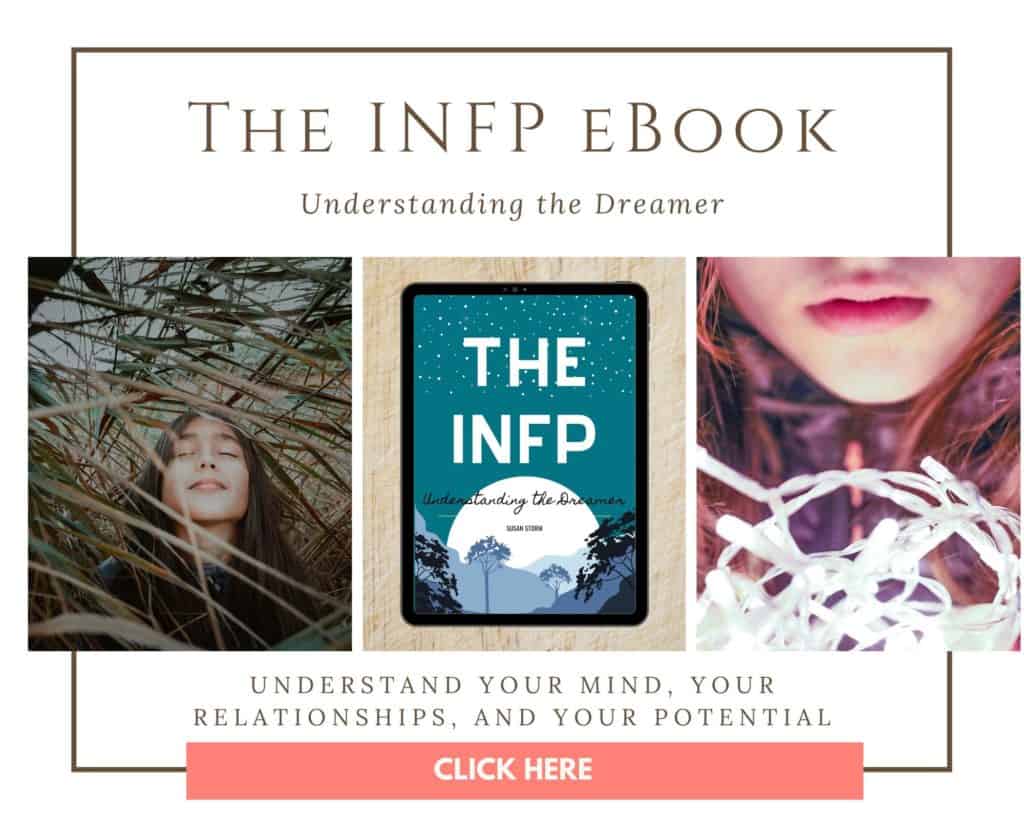


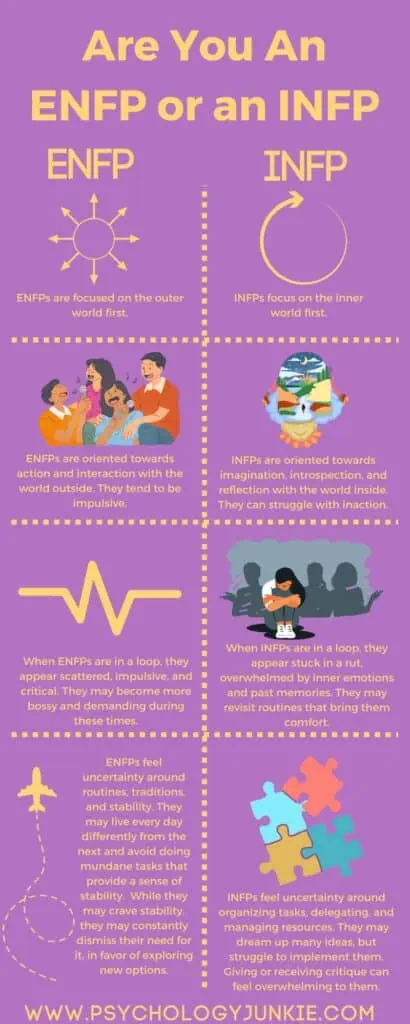
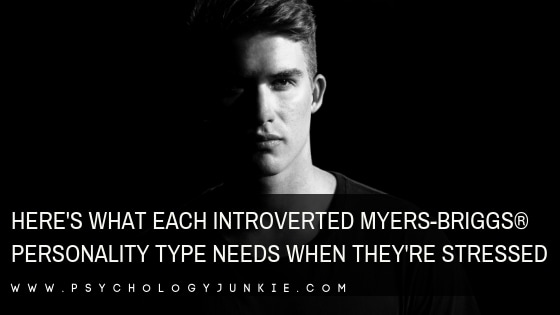
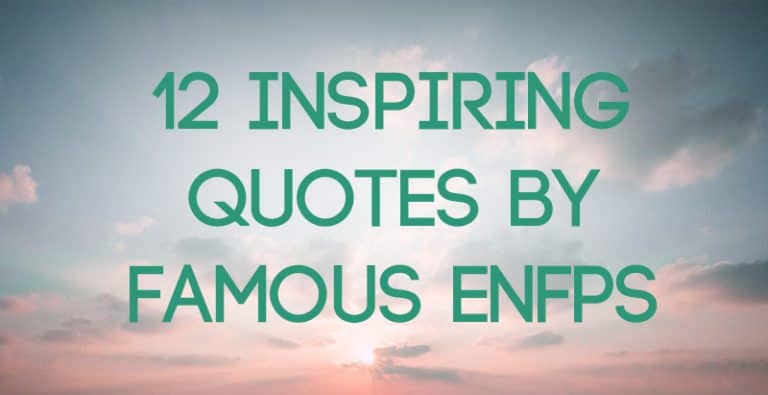
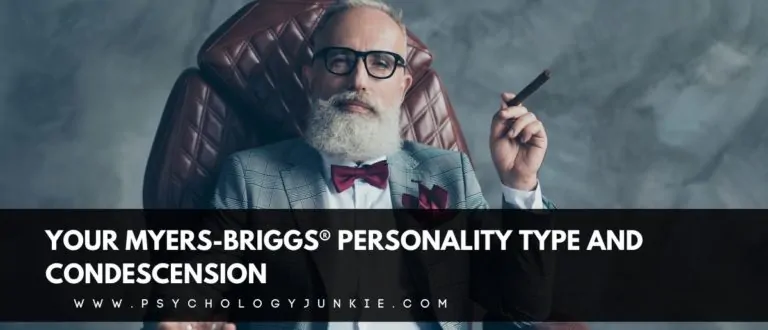

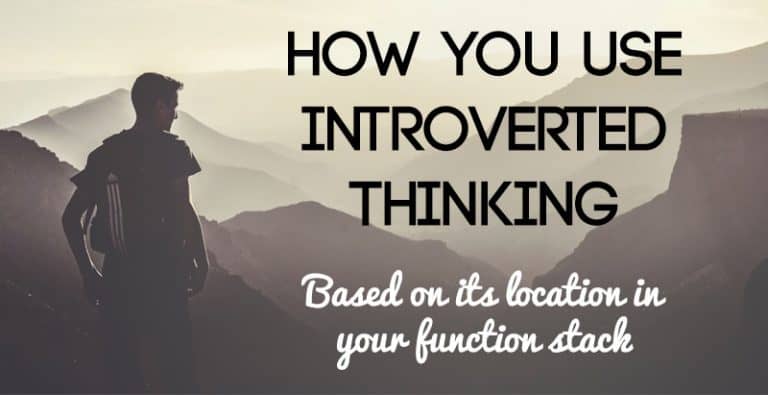
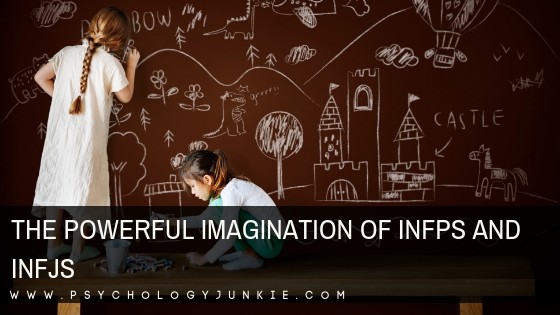
This really helped me. I took the test and I had the ENFP result, and I looked a lot into the type, noticing lots of similarities and I related to a fair amount of things in the articles. But I retook the test a couple of months later and I got the result of the INFP. I was feeling rather…sad, almost. I enjoyed thinking of myself as an ENFP – it really helped me understand myself, and then suddenly that understanding had been changed. Was I an ENFP or was I really an INFP?
But after reading this article, I know that I am definitely an ENFP at heart. I do deeply relate to a lot of traits of the INFP and I deeply value authenticity and one-on-one relationships where I can truly and fully express myself, but I also do not relate to other things. Like the INFP’s usual dislike of social interactions, and their quietness. I know now that I definitely focus first on the outside world, jumping into one activity after the other and thriving in social situations – I am an ENFP, who can relate to aspects of the INFP. I’m happy with this, thank you for this article! 😊